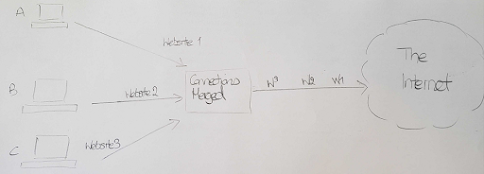The value of network monitoring in an encrypted world
This rise of encryption The last decade has seen encryption applied to vast portions of internet traffic. Services offered by Google, Meta and Microsoft are all encrypted indeed around 80% of all web traffic uses TLS encryption (the padlock at the top of your browser next to the website address) compared to just 58% 5 years ago and 26% in 2014 (1) . There are at least two drivers behind this change. Firstly various revelations into the monitoring performed by governments has raised public awareness to the vulnerability their otherwise private activity has to being intercepted. Secondly the processing power required to implement encryption on a universal basis has become readily available driven by the inclusion of functions within processors that vastly improve the efficiency with which encryption can be performed. Historically network monitoring was able to provide an insight into users online activity by analysing the data they sent across the internet. Much of this can no longer be ...
